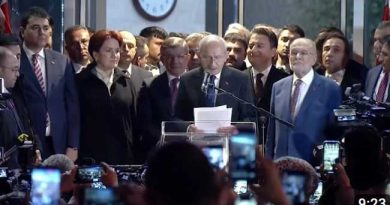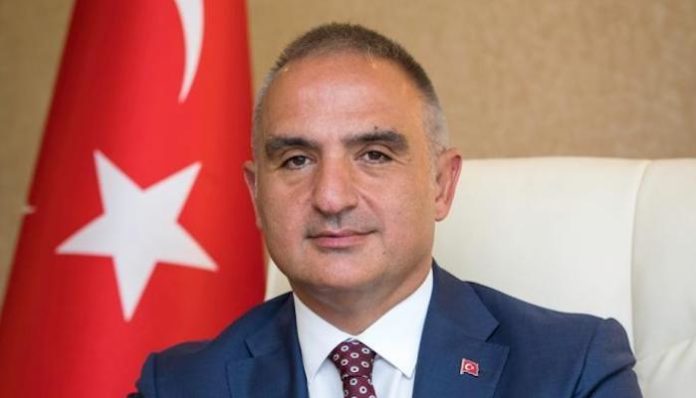Alevis in Turkey Unsatisfied with Turkish Government’s Report
Alevi organizations in Turkey have expressed dissatisfaction over the final report prepared by the government after a series of government-led Alevi workshops.
“The report is not satisfactory and seems to be an election ploy. It doesn’t meet the Alevis’ demands which have been voiced for years,” Ercan Geçmez, president of the Hacı Bektaş Veli Anatolian Culture Foundation, told the Hürriyet Daily News & Economic Review.
“In response to some of our demands including the recognition of cemevis as legitimate places of worship, they [the government] pointed to some Republican reforms as an excuse, thus exposing us against some certain [secular] circles,” he said.
“They likewise emphasize the necessity and importance of constitutional change with regard to our demand of an end to mandatory religious education. This proposal similarly remains insincere given the fact that the government already made constitutional amendments that were approved in the referendum last year,” Geçmez said.
The government would have made the necessary constitutional change on the issue and put them in the reform package at the time if they had been sincere, he said.
Alevis, members of a community widely perceived as a liberal branch of Islam, and Alevi organizations have long raised several demands including the recognition of cemevis as legitimate places of worship for Alevis, an end to mandatory religious education and the transformation of the Madımak Hotel, where 37 Alevi artists and intellectuals died in a fire set by a crowd of fundamentalists in 1993, into a museum.
They have also demanded the dissolution of the Religious Affairs Directorate, which is currently dominated by the country’s Sunni majority, and the abolition of compulsory religious courses from the school’s curriculum, which they criticized for only teaching Sunni Islam. They demanded mandatory religious courses be optional.
The report, announced Thursday as the culmination of seven Alevi workshops led by the government, included rather ambiguous solution proposals and gestures instead of suggesting concrete answers to Alevis’ basic demands on education, cemevis and the religious directorate.
The report suggested a constitutional change for the compulsory religious courses while granting the right to determine the content of compulsory or selective religion classes to the Alevi community. The current religious courses should be rearranged so as to be in equal distance to all beliefs, the report said.
The report advised that cemevis should have a legal status and a legal commission should be set up to produce a formula in line with the Constitution for those who don’t want to benefit from the religious directorate’s services.
The report highlighted, however, that the possible constitutional arrangements on these issues should not contradict the Republican reforms.
For the Madımak Hotel, the report called for a rearrangement of a portion of the building as a memorial for those who lost their lives there.
Ali Balkız, former head of the Alevi-Bektaşi Federation, said the Alevis had been cheated as their basic demands on cemevis, Madımak and religious courses were not met while Fermani Altun, head of the World Ehl-i Beyt Foundation, praised the government’s Alevi initiative as a crucial step to further democratization.
The Madımak Hotel problem was solved, he said, and it was understood that constitutional reforms constituted the major obstacle before the solution of other problems. A new civilian Constitution is needed, he said.
‘Republican reforms not excuse’
Fevzi Gümüş, chairman of the Pir Sultan Abdal Culture Association, or PSAKD, said the ruling Justice and Development Party, or AKP, government put forward the Republican reforms as an “excuse” to not solve the Alevi community’s problems.
From the beginning Alevis asked for the abolishment of Article 24 of the Turkish Constitution, making “Religious Culture and Moral Education” a compulsory course for primary and secondary school students, but the report simply asked for an evaluation of the article within Republican reforms, he said.
“None of our demands are related to the Republican reforms. We want a legal status for cemevis, for instance. They can’t raise them as justification in solution of our problems,” Gümüş said.
“Besides, in some cases, the government hasn’t hesitated to confront the Republican values. They shouldn’t introduce these old laws as an excuse.”
April 2, 2011
SOURCE: Hürriyet Daily News





